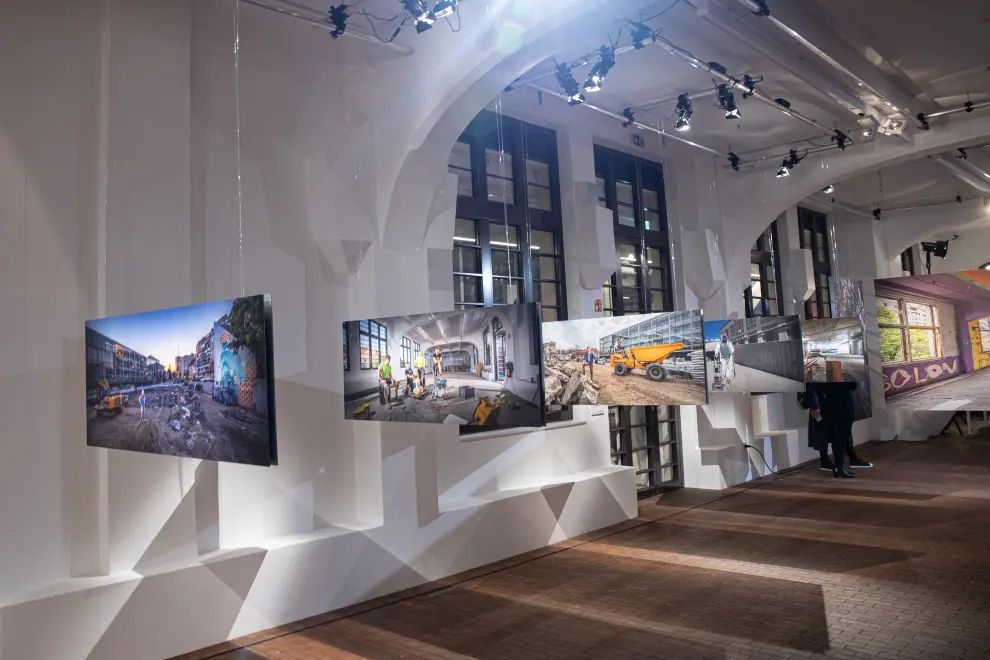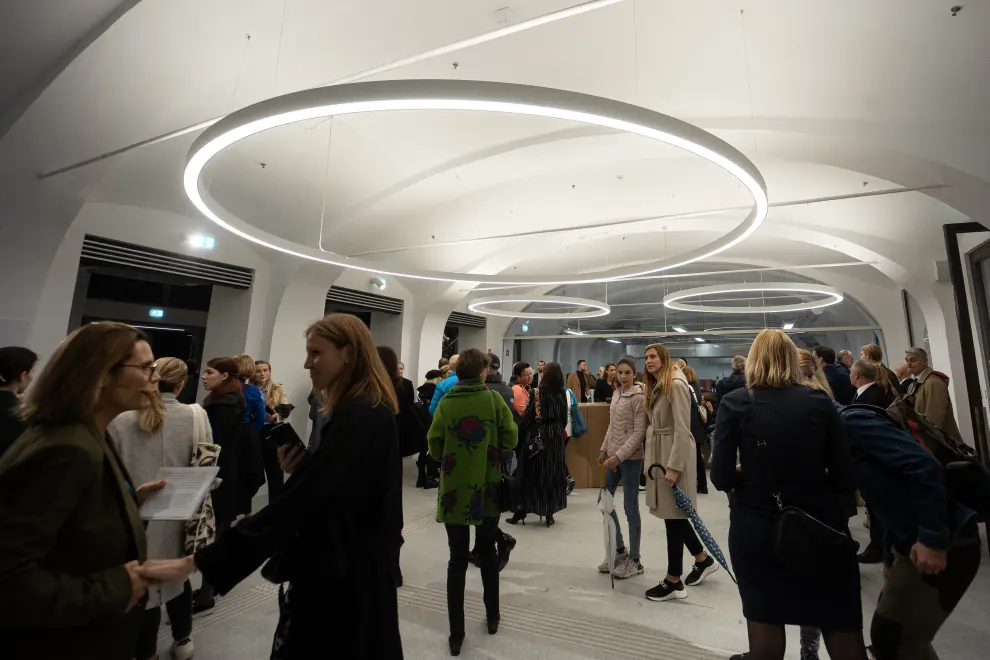New Ljubljana creative hub opens amid protests
A new creative and social hub was inaugurated in a revamped former Ljubljana bicycle factory on 26 October amid a protest by members of an autonomous community who were forcibly evicted from the run-down compound two years earlier to make way for renovation.
Stretching along the riverside, not far from the Cukrarna Gallery downstream on the other side of the Ljubljanica, Rog Centre is meant to address a lack of work spaces for creatives in the capital and comes at a cost of roughly €25 million to the city.
The centre will house nine production "labs" or co-production workshops, including carpentry, metalworking, ceramics, glass, cookery and textiles workshops, 3D printing, laser cutting and electronics workshops, jewellery and precious metals workshops and a green technology lab.
The workshops will be open to the professional as well as general public for an annual membership fee of €15, or €10 for students, those under 25 or over 65, the unemployed and asylum seekers.
 Rog Centre opens with an exhibition documenting its transformation from a former bicycle factory. Photo: Katja Kodba/STA
Rog Centre opens with an exhibition documenting its transformation from a former bicycle factory. Photo: Katja Kodba/STA
Rog Centre will also provide 19 studios for artists and collectives from various artistic fields, along with with five residential studios reserved for foreign artists, as well as a library on 300 square metres of space.
Once all the facilities are open, the venue will also feature a large area for socialising and exhibitions, two restaurants, cafes and six shops, one of them selling products manufactured at the labs.
Rog Centre moreover plans to provide space and opportunities for schools and has already signed a partnership contract involving ten colleges. These are expected to have a classroom in the building for their interdisciplinary projects.
The side of the building facing away from the river is fronted by the Park of the Erased with a memorial to some 25,700 people originating from other parts of the former Yugoslavia who were deleted from Slovenia's permanent residence registry in 1992.
 Rog Centre opening ceremony. Photo: Katja Kodba/STA
Rog Centre opening ceremony. Photo: Katja Kodba/STA
The opening marks a major new chapter in the history of the site that dates back to 1871. It all began with leather tanning facilities, which were nationalised in 1945 and converted for the purposes of the Rog factory about six years later.
The industrial compound, spanning about 7,000 square metres, was left to dilapidate after the bicycle factory terminated production in 1991. In 2006 the premises were squatted by activists and turned into a counterculture centre that was forcibly shut down by the city in 2021.
Photographers Branko Čeak and Jure Horvat attempted to capture some of this history but primarily the conversion of the complex over the past two years in an exhibition that was launched as part of the inauguration ceremony.
Ahead of the opening ceremony, members of the evicted autonomous community gathered for a protest. Carrying banners and banging drums, they circled the centre, marking the facade and windows with stickers and graffiti.
 A protest accompanies the inauguration of Rog Centre. Photo: Katja Kodba/STA
A protest accompanies the inauguration of Rog Centre. Photo: Katja Kodba/STA
They tried to enter the building for the opening ceremony, but were blocked by security guards and there was a brief scuffle after police tried to clear out the entrance area before a riot police intervened, TV Slovenija reported.
The protesters shouted "repression everywhere, justice nowhere". One of their banners read "Secret opening, public liberation" in reference to the opening ceremony being restricted to guests with invitations only.
The group claims the new centre will be driven by profit rather than creativity, expressing concern about further gentrification of the surrounding area. They say the new centre will accommodate creative elites.
The centre's director Renata Zamida has denied their claims, explaining that more than half of all space available will be open to creativity and that calls are still open for the studios.
Ljubljana Mayor Zoran Janković said the city had agreed with the Rog community 17 years ago that they would leave the factory once the city decided to renovate it, but when the time came the new generation opposed the plan and the city won its case against them in court.
He said they offered those Rog people who would not opt to move to a substitute location 600 sq metres of space in the new centre for free as part of the mediation process, but they refused to accept the offer.


